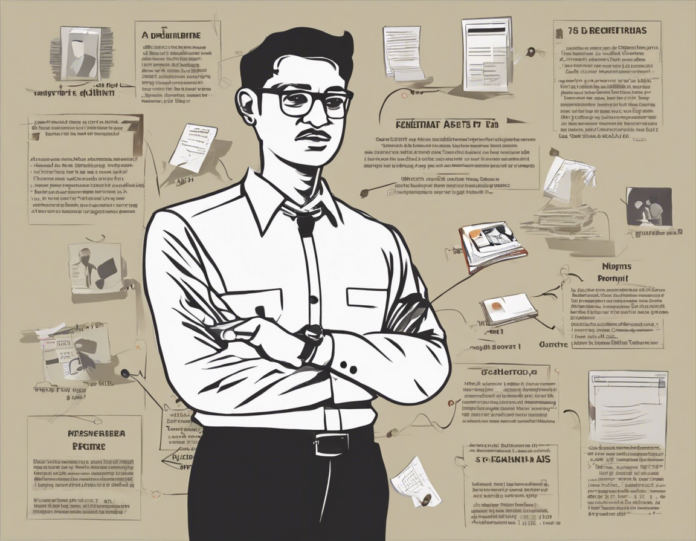Before diving into the process of becoming an IAS officer, it is essential to understand the significance of this prestigious role. The Indian Administrative Service (IAS) is one of the most coveted positions in the country, offering individuals the opportunity to serve the nation by working on crucial policies, projects, and administrative tasks. Given the competitive nature of the civil services exam, aspiring candidates need a well-structured plan and dedication to realize their goal of becoming an IAS officer. This comprehensive guide outlines the steps required to achieve this dream.
Understanding the Eligibility Criteria
To begin your journey towards becoming an IAS officer, it is crucial to understand the eligibility criteria set by the Union Public Service Commission (UPSC), the governing body responsible for conducting the Civil Services Examination (CSE). The key requirements include:
- Nationality: The candidate must be a citizen of India.
- Age Limit: The candidate must be between 21 and 32 years of age.
- Educational Qualification: The candidate must hold a bachelor’s degree from a recognized university.
Cracking the Civil Services Examination (CSE)
The CSE is a three-stage selection process that comprises the Preliminary Examination, Main Examination, and Personal Interview. Here’s a detailed overview of each stage:
1. Preliminary Examination
- Syllabus: The Prelims consist of two papers: General Studies Paper-I and General Studies Paper-II (Civil Services Aptitude Test – CSAT).
- Preparation: Focus on current affairs, history, geography, polity, economy, and other relevant topics.
- Practice: Solve previous years’ question papers and take mock tests to improve time management.
2. Main Examination
- Syllabus: The Main exam includes nine papers, out of which seven are merit-based and two are qualifying in nature.
- Essay Writing: Practice essay writing on various topics to enhance your articulation skills.
- Optional Subject: Choose an optional subject wisely and master it thoroughly.
3. Personal Interview
- Personality Test: The interview panel assesses the candidate’s personality, communication skills, and overall suitability for the role.
- Mock Interviews: Participate in mock interview sessions to gain confidence and receive constructive feedback.
Building a Strong Preparation Strategy
To increase your chances of success in the CSE, it is essential to formulate a robust preparation strategy that covers all aspects of the exam:
- Consistent Study Routine: Dedicate a fixed number of hours every day for studying and revision.
- Current Affairs: Stay updated with current events through newspapers, magazines, and online sources.
- Revision: Regularly revise the topics to reinforce your understanding.
- Mock Tests: Take regular mock tests to gauge your progress and identify areas of improvement.
Frequently Asked Questions (FAQs)
1. How many attempts are allowed for the Civil Services Examination?
Candidates belonging to the General category can attempt the exam six times, while OBC and SC/ST candidates have relaxation in the number of attempts based on certain criteria.
2. Is coaching necessary to crack the IAS exam?
While coaching can be beneficial for some candidates, self-study with the right resources and guidance is equally effective. The decision to opt for coaching depends on individual preferences and requirements.
3. What is the ideal time to start preparing for the Civil Services Examination?
It is recommended to start your preparation early, ideally a year or more before the exam date. This allows ample time for comprehensive coverage of the syllabus and multiple revisions.
4. How important is the selection of an optional subject in the Main exam?
The optional subject plays a crucial role in your Main exam scores. It is advisable to choose a subject that aligns with your interests, background, and availability of study material.
5. Can working professionals prepare for the IAS exam simultaneously?
Yes, working professionals can prepare for the exam alongside their job by managing their time effectively, setting realistic goals, and maintaining consistency in their preparation routine.
In conclusion, becoming an IAS officer is a rewarding journey that requires perseverance, dedication, and strategic planning. By understanding the eligibility criteria, mastering the exam stages, and implementing a structured preparation strategy, aspiring candidates can increase their chances of success in the Civil Services Examination. Remember, consistency and hard work are key to achieving your goal of serving the nation as an IAS officer.





